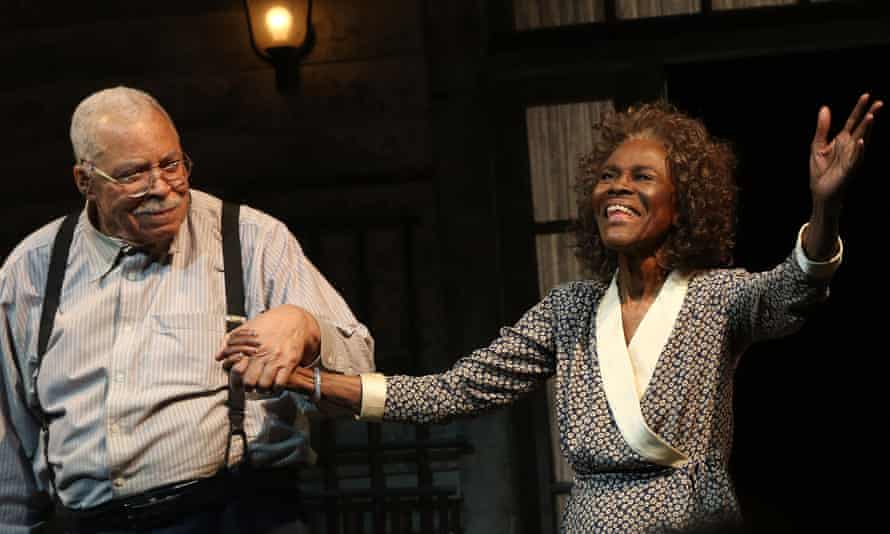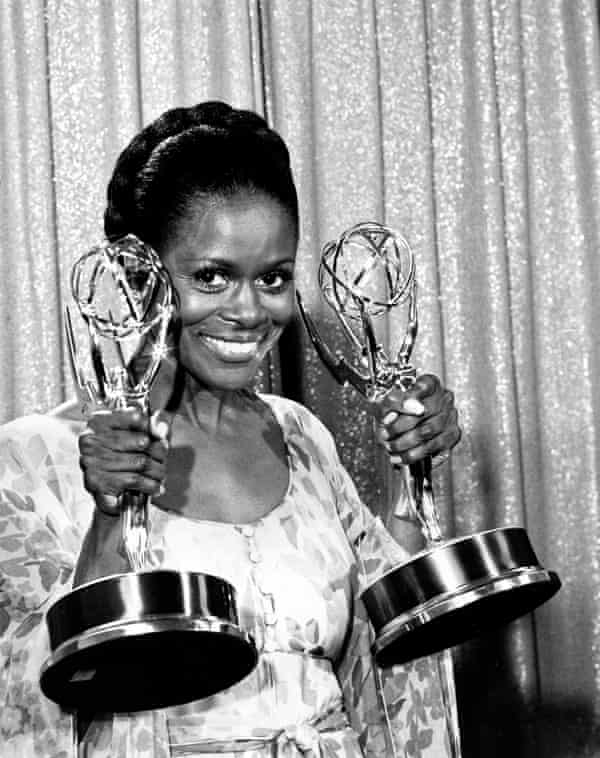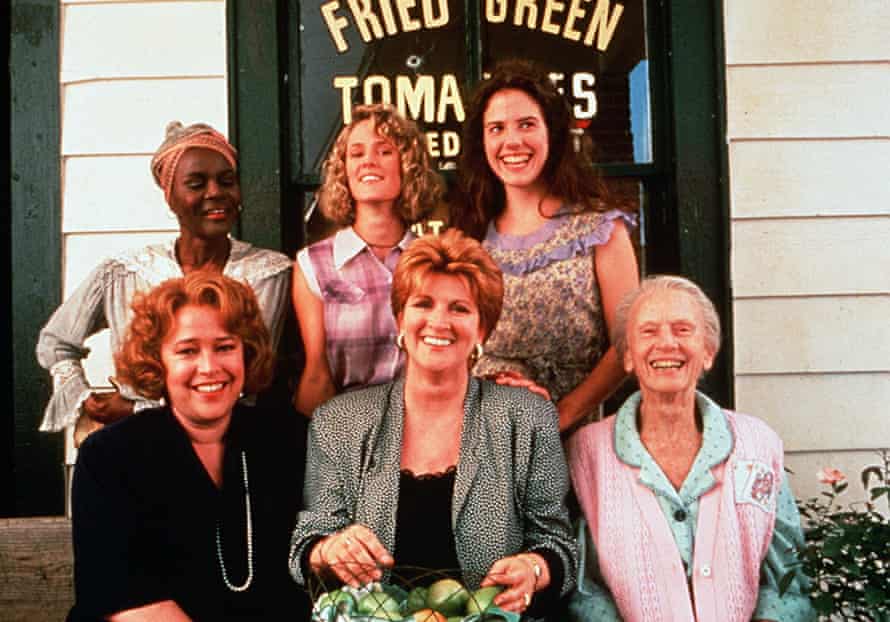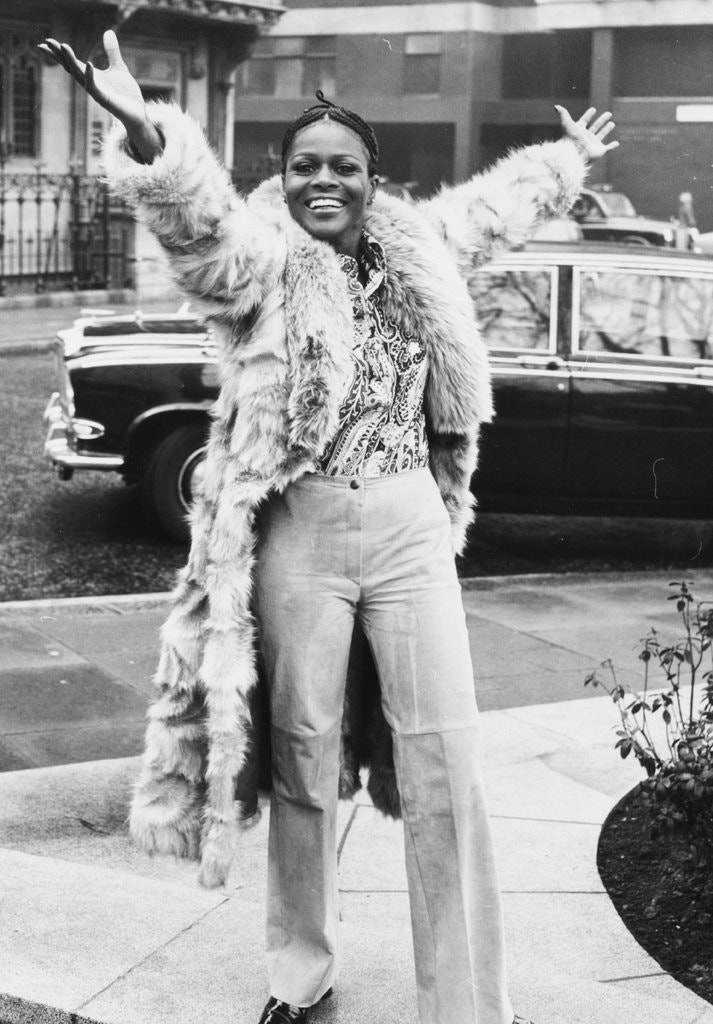CECILY TYSON
In a remarkable career of many decades, she refused to take parts that demeaned Black people and won a Tony, Emmys and an honorary Oscar.
The New York Times, 28 January 2021
Cicely Tyson, the stage, screen and television actress whose vivid portrayals of strong African-American women shattered racial stereotypes in the dramatic arts of the 1970s, propelling her to stardom and fame as an exemplar for civil rights, died on Thursday. She was 96.
Her death was announced by her longtime manager, Larry Thompson, who provided no other details.
Cicely Tyson was born in East Harlem on Dec. 19, 1924, the youngest of three children of William and Theodosia (also known as Frederica) Tyson, immigrants from the Caribbean island of Nevis. Her father was a carpenter and painter, and her mother was a domestic worker. Her parents separated when she was 10, and the children were raised by a strict Christian mother who did not permit movies or dates.
After graduating from Charles Evans Hughes High School, Cicely became a model, appearing in Vogue, Harper’s Bazaar and elsewhere. In the 1940s, she studied at the Actors Studio. Her first role was on NBC’s “Frontiers of Faith” in 1951. Her disapproving mother kicked her out.
After small film and television parts in the 1950s, she joined James Earl Jones and Louis Gossett Jr. in the original New York cast of Jean Genet’s “The Blacks” in 1961. It was the longest-running Off Broadway drama of the decade, running for 1,408 performances. Ms. Tyson played Stephanie Virtue, a prostitute, for two years, and won a Vernon Rice Award in 1962, igniting her career.
She helped found the Dance Theater of Harlem after the 1968 assassination of Dr. King. In 1994, an East Harlem building where she lived as a child was named for her; it and three others were rehabilitated for 58 poor families. In 1995, a magnet school she supported in East Orange, N.J., was renamed the Cicely Tyson School of Performing and Fine Arts.
Her later television roles included that of Ophelia Harkness in a half dozen episodes of the long-running ABC legal drama “How to Get Away With Murder,” for which she was nominated repeatedly for Emmys and other awards for outstanding guest or supporting actress (2015-19), and in the role of Doris Jones in three episodes of “House of Cards” (2016).

In 2016, President Barack Obama awarded her the Presidential Medal of Freedom, the nation’s highest civilian honor.
She was always reticent about her age, charity work and other personal details, like being a good-will ambassador for Unicef in 1985-86 and her marriage to Miles Davis, which ended in divorce.
But she was adamant about dramatic roles.
“We Black actresses have played so many prostitutes and drug addicts and housemaids, always negative,” she told Parade magazine in 1972. “I won’t play that kind of characterless role any more, even if I have to go back to starving.”
And in November 2018, a month before she turned 94, Ms. Tyson received an honorary Oscar, a Governors Award of the Academy of Motion Picture Arts and Sciences. In an emotional acceptance speech in Los Angeles, Ms. Tyson, whose highest accolade from the film industry had been her Oscar nomination in 1972, paid tribute to her mother, who had opposed her plan for a career as an entertainer.
“Mom, I know you didn’t want me to do this,” she said, “but I did, and here it is. I don’t know that I would cherish a better gift than this,” she told the audience. “This is the culmination of all those years of have and have-not.”
Despite the gathering force of the civil rights movement in the 1960s, there were few substantial roles for talented, relatively unknown Black actresses like Ms. Tyson. She appeared in Broadway plays, television episodes and minor movie roles before playing Portia, a supporting but notable part in the 1968 film version of Carson McCullers’s “The Heart Is a Lonely Hunter.”
In a remarkable career of seven decades, Ms. Tyson broke ground for serious Black actors by refusing to take parts that demeaned Black people. She urged Black colleagues to do the same, and often went without work. She was critical of films and television programs that cast Black characters as criminal, servile or immoral, and insisted that African-Americans, even if poor or downtrodden, should be portrayed with dignity.
Her chiseled face and willowy frame, striking even in her 90s, became familiar to millions in more than 100 film, television and stage roles, including some that had traditionally been given only to white actors. She won three Emmys and many awards from civil rights and women’s groups, and at 88 became the oldest person to win a Tony, for her 2013 Broadway role in a revival of Horton Foote’s “The Trip to Bountiful.”
At 93, she won an honorary Oscar, and was inducted into the American Theater Hall of Fame in 2018 and into the Television Hall of Fame in 2020. She also won a career achievement Peabody Award in 2020.
Later films included the homely drama Fried Green Tomatoes at the Whistle Stop Cafe (1991), in which she played a cook who accidentally kills a racist brute; her colleagues barbecue him and serve the meat to investigators. She appeared in several movies by the actor-writer-director Tyler Perry, wildly popular in the US, among them Madea’s Family Reunion (2006) and Why Did I Get Married Too? (2010). In the Oscar-winning The Help (2011), she is a Mississippi maid who is unjustly fired.

For her performance in the 2013 Broadway production of The Trip to Bountiful she won a Tony, becoming at 88 the oldest person ever to do so. A television version was screened in 2014. At the age of 90, she starred on Broadway in The Gin Game, in which she and James Earl Jones played care home residents. The two actors had first starred together nearly 55 years earlier in the long-running 1961 Off-Broadway production of Jean Genet’s The Blacks. She was also a five-time Emmy nominee for the legal drama How to Get Away with Murder (2015-20).
Tyson had an on-off relationship with the musician Miles Davis, finally marrying him in 1981. They were divorced in 1989. An earlier marriage, to Kenneth Franklin, ended in divorce, and produced a daughter, whose name Tyson kept secret (calling her “Joan” in her memoir), and who survives her.
The actor Cicely Tyson, who has died aged 96, resolved early in her career to bring a positive philosophy to the parts she played. “My art had to both mirror the times and propel them forward,” she wrote in her memoir Just As I Am, published only weeks before her death. “I was determined to do all I could to alter the narrative about Black people – to change the way Black women in particular were perceived, by reflecting our dignity.”
Nowhere was this more apparent than in the film Sounder (1972), for which she received an Oscar nomination. She played Rebecca, a woman in early 1930s Louisiana, who holds her sharecropping family together after her husband, Nathan (Paul Winfield), is sentenced to hard labour for a minor theft. What is remarkable is how little attention Tyson calls to herself. Rebecca gets none of the demonstrative, overwrought scenes commonly favoured by Oscar voters. Nor does she so much as raise her voice until the end of the movie, when she permits herself a shriek of joy as she spots Nathan hobbling up the dirt track towards their home at last.
“The story in ‘Sounder’ is a part of our history, a testimony to the strength of humankind,” Ms. Tyson told The New York Times after receiving rave reviews and an Oscar nomination for best actress. “Our whole Black heritage is that of struggle, pride and dignity. The Black woman has never been shown on the screen this way before.”
In ‘Sounder’ Cecily creates, almost by stealth, a cumulative portrait of a woman defined by her quiet perseverance and tenacity. It never wavers, even as she is treated unfairly – pilloried by the farmer who exploits her family, or rebuffed by a callous sheriff after walking miles to see her husband following his arrest.

Sounder itself is plain and prosaic, marked more by good intentions than cinematic sensibility. But it is elevated by its cast, especially Tyson and Winfield, whose charged scenes together, though brief, convey the depth of a decades-old marriage. The New York Times said Tyson “seems to understand that part of screen acting is keeping secrets from the camera”. Though she was beaten to the best actress prize by Liza Minnelli for Cabaret, she received an honorary Oscar in 2018.
She had been invited originally to audition for the smaller but more obviously inspirational role of the schoolteacher who takes Rebecca’s son under her wing, opening his eyes to important African-American role models such as the abolitionist Harriet Tubman. “I didn’t consider the schoolteacher a challenge, and Rebecca was,” she later said. “There were so many aspects of [her] that I found exciting enough to want to know if I could encompass this woman’s character. One was her strength, her courage, her love for her family, her knowledge that no matter how difficult things were, they were going to get better.”
She was told that she was “too pretty, too sexy” to play Rebecca. Months later, having found no superior candidate, the film-makers offered her the part. When asked by her agent why she wasn’t excited at the news, she replied: “Because I knew she was mine all along. I was just waiting for them to find out.”
In 1974, Ms. Tyson stunned a national television audience with her Emmy Award-winning portrayal of a former slave in the CBS special “The Autobiography of Miss Jane Pittman,” adapted from the novel by Ernest J. Gaines. Born into slavery before the Civil War, Miss Pittman survives for more than a century to see the civil rights movement of the 1960s. At 110, she tells her story, the searing experience of a Black woman in the South. Then, in her only gesture of protest, she sips from a whites-only drinking fountain.
Preparing for her metamorphosis, Ms. Tyson visited nursing homes to study the manifestations of old age: the frail shoulders and shaking hands, the unfocused sparkling eyes and slurred speech, the struggle for names and important thoughts just beyond reach.
“Cicely Tyson transforms that role into the kind of event for which awards are made,” John J. O’Connor wrote in The Times, citing her passage from young innocence through cycles of age and maturity to shriveled, knowing antiquity. “She absorbs herself completely into Miss Jane, in the process creating a marvelous blend of sly humor, shrewd perceptions and innate dignity.”
Tyson’s career embraced black history, achievement and aspiration in stories factual and fictional. For the TV movie, she won two Emmys for playing a former slave whose life stretches from the civil war to the civil rights movement. In the popular TV adaptation of Alex Haley’s novel Roots (1977), she played Binta, the mother of the protagonist, Kunta Kinte; the poet Maya Angelou was her midwife.


Ms. Tyson later found other suitable television roles: as Kunta Kinte’s mother in a mini-series based on Alex Haley’s “Roots” in 1977; as Coretta Scott King in the 1978 NBC mini-series “King,” about the Rev. Dr. Martin Luther King Jr.’s final years; as Harriet Tubman, whose Underground Railroad spirited slaves to freedom, in “A Woman Called Moses” (1978); and as a Chicago teacher devoted to poor children in “The Marva Collins Story” (1981). In 1994, she won a supporting actress Emmy for her portrayal of Castalia in the mini-series “Oldest Living Confederate Widow Tells All.”
In the miniseries King she was reunited with Winfield: he played Martin Luther King and she his wife, Coretta Scott King. In A Woman Called Moses (1978), she played Tubman, while in The Marva Collins Story (1981), also for TV, she was the Chicago teacher who founded an inner-city prep school for the children of black, low-income families.
For many Americans, Ms. Tyson was an idol of the Black Is Beautiful movement, regal in an African turban and caftan, her face gracing the covers of Ebony, Essence and Jet magazines. She was a vegetarian, a teetotaler, a runner, a meditator and, from 1981 to 1989, the wife of the jazz trumpeter and composer Miles Davis. Since the ’60s she had inspired Black American women to embrace their own standards of beauty — including helping to popularize the Afro.
“She’s our Meryl Streep,” Vanessa Williams told Essence in 2013. “She was the person you wanted to be like in terms of an actress, in terms of the roles she got and how serious she took her craft. She still is.”
Ms. Tyson eventually appeared in 29 films; at least 68 television series, mini-series and single episodes; and 15 productions on and off Broadway, including “Tiger, Tiger Burning Bright” (1962) and “To Be Young, Gifted and Black” (1969).
In “The Corn Is Green” (1983), an Emlyn Williams play set in Wales, Ms. Tyson received mixed reviews as Miss Moffat, an English schoolteacher in a coal-mining town who awakens the minds of impoverished youngsters. Bette Davis and Katharine Hepburn played the part in earlier film and television adaptations.

After a three-decade absence from Broadway, Ms. Tyson returned in 2013 in a production of “The Trip to Bountiful,” playing Carrie Watts, an old woman, also conceived as a white character, who yearns to see her hometown before dying. Her performance won the Tony, Drama Desk and Outer Critics Circle awards.
“It’s been 30 years since I stood onstage; I really didn’t think it would happen again in my lifetime, and I was pretty comfortable with that,” Ms. Tyson said at the Tonys ceremony. “Except that I had this burning desire to do just one more. ‘One more great role,’ I said. I didn’t want to be greedy. I just wanted one more.”
And she appeared with James Earl Jones for nearly four months in 2015-16 in a Broadway revival of “The Gin Game,” D.L. Coburn’s Pulitzer Prize-winning 1976 play about two elderly residents of a retirement home drawn together over a card table.
Mr. Jones, then 84, and Ms. Tyson, 90, were onstage for virtually all of its two-hour running time, as Charles Isherwood noted in a review for The Times. “These two superlative performers establish beyond doubt, if we needed any reminding, that great talent is ageless and ever-rewarding,” he said.

In January 2021, when she was 96, her memoir, “Just as I Am,” appeared, and in a pre-publication interview with The New York Times Magazine, she was asked if she had any advice for the young.
“It’s simple,” she said. “I try always to be true to myself. I learned from my mom: ‘Don’t lie ever, no matter how bad it is. Don’t lie to me ever, OK? You will be happier that you told the truth.’ That has stayed with me, and it will stay with me for as long as I’m lucky enough to be here.”
Cecily transitioned to become an ancestor on 28 January, 2021.
Sources: The Guardian. The New York Times




